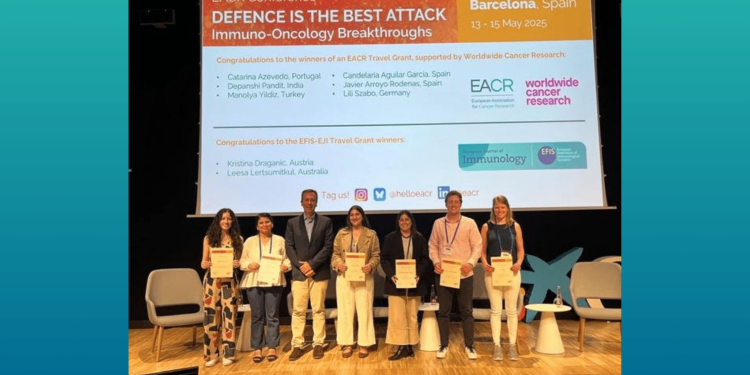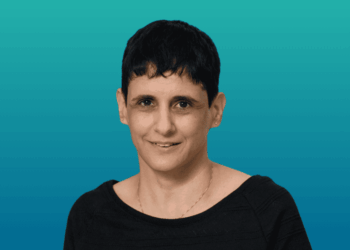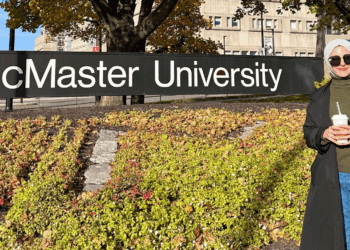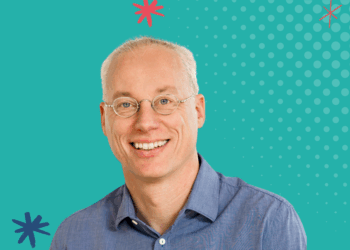We met in Barcelona, Spain for Defence is the Best Attack: Immuno-Oncology Breakthroughs between 13 and 15 May 2025. It was the fifth edition of this popular EACR conference, and participants enjoyed a dynamic scientific programme covering the most recent advances in the field of immunotherapy from the basic science to clinical studies, including the identification of novel targets.
Supported by Worldwide Cancer Research, we were delighted to award several Travel Grants to help cancer researchers in need of financial assistance to attend the event.
Read on to learn about their experience of the conference.
Candelaria Aguilar García
PhD student, University of Oviedo, Spain

Research: Immunotherapy has revolutionised cancer treatment by activating the patient’s immune system to attack tumours. However, it remains ineffective against glioblastoma, the most aggressive brain tumour, which uses specific molecules to block immune system attack. This project investigates how glioblastoma escapes immune attack, aiming to find new ways to overcome this resistance. A key focus is IFN-γ, a molecule with dual roles: while it can suppress tumour growth, it also helps tumours evade immunity by increasing molecules that dampen immune responses. Understanding and targeting these mechanisms could lead to better treatments and renewed hope for patients with glioblastoma.
How has the conference inspired you in your research?
I had the chance to listen to top scientists in the field of immuno-oncology, which was an incredible experience. Some of them, like Dr. Tak Mak, had the ability to keep the audience engaged even when explaining complex topics. They showed me that science can be communicated in a clear and simple way, even to expert audiences. I also learned a lot from the talks and came back with new ideas and better explanations for my own research hypothesis. Without a doubt, it was an amazing experience that gave me more motivation to continue my work.
Have you brought back any specific knowledge that has benefited your research?
Yes, the talks by Johanna Joyce and Joan Seoane were especially valuable for my research. Johanna introduced a brain tumour database that has been very helpful for my own data searches. She also inspired me with her clear and engaging way of presenting science. Joan Seoane shared his innovative in vitro models developed directly from patient brain tissue, which gave me new ideas for experimental design. His work on immune checkpoint blockade was also very relevant and encouraged me to improve the methodology in my own experiments.
Did you take part in any interesting local activities in your free time outside of the
conference?
Yes, my lab colleague and I visited the Sagrada Familia, a breathtaking symbol of Catalan
modernism, and enjoyed strolling through the Parc de la Ciutadella and along Barceloneta Beach. Experiencing the culture and architecture of Barcelona was incredibly enriching. It allowed us to disconnect and recharge after intense conference days, and also offered a valuable opportunity to bond with my colleague outside of the academic setting. This balance between science and cultural immersion made the trip even more memorable and inspiring.
Is there anything else you’d like to mention?
I would like to highlight the importance of organising conferences focused on specialised areas such as immuno-oncology, especially given the crucial role this field plays in the development of new cancer treatments today. These types of meetings allow young researchers, like me, to stay up to date with the latest advances, connect with experts, and exchange ideas that can truly shape our scientific careers. I’m very grateful to the EACR for awarding me the travel grant, as it gave me the chance to attend such a high-level event, learn from leading scientists, and gain valuable insights for my own research. This experience has been of great value for my future as a researcher and has strengthened my motivation to keep working in this important area.
Catarina Azevedo
PhD student, School of Medicine and Biomedical Sciences, i3S – Institute for Research and Innovation in Health, University of Porto, Portugal

Research: In my project, I’m focused in understanding the impact of T cell N-glycosylation (sugars that cover T cell surface) in colorectal cancer and in its precursor lesions, envisioning the reprogramming of T cell glycosignature as a novel immunotherapy for colorectal cancer treatment, by making T cells more potent to fight cancer cells.
How was this conference different from others you have attended?
The fact that is a conference very focused on the latest topics on immuno-oncology and relatively small provides the contact with a lot of colleagues in the field, allowing for the sharing of knowledge and potential collaboration. The environment is very inviting and somehow “informal” making it very easy to discuss ideas with my peers. In fact, some potential collaboration might happen due to this conference. The research topics and the speakers were also very interesting, covering a lot in the field of tumour immunology. I definitely want to come back in two years.
Did you take part in any interesting local activities in your free time outside of the conference?
In my free time outside the conference, I got to visit some touristic and famous places, like Tibidabo, and enjoying the view to the city from above. I also got to try some local food and fruit smoothies in Mercat de la Boqueria and paella in a local restaurant near Sagrada Familia.
When you got home, is there anything from the conference that you immediately wanted to tell your colleagues about?
When I got back to my home lab I wanted to share a lot of what I had learned in this conference. Specifically some of the hot topics in the field, as CAR-T cell and neoantigens research. This conference has giving me a lot of ideas about how to pursue my own research, either by assisting the lectures of some speakers or by the opportunity to discuss my work with others in this field.
Have you brought back any specific knowledge that has benefited your research?
Yes, during the conference I learn a lot in the topic of immuno-oncology. But particularly during the poster session, after my Proffered Paper talk, some colleagues came to my poster to discuss my work with me, giving me important feedback that helped me to respond to the revisions of my paper.
Depanshi Pandit
PhD student, Manipal Institute of Technology, Manipal Academy of Higher Education, Manipal, Karnataka, India
Research: I study how genes that repair damaged DNA interact with those involved in inflammation – two key processes often hijacked in cancer. By using computer-based (in silico) and lab-based (in vitro) methods, I aim to understand this “crosstalk” better. This helps us find new ways to target these genes and design more effective, personalised treatments for cancer.
What was a personal highlight of the conference for you?
Attending this conference was truly a highlight of my academic journey. It was my first international conference outside my home country, and every moment was enriching and empowering. The keynote lectures by esteemed professors and clinicians from around the world, who delivered talks on different mechanisms of targeting various aspects in the immuno-oncology field were deeply engaging and eye-opening. They sparked a stronger curiosity in me to explore the field further, as I am still new to the research and learning. I’m incredibly grateful to the EACR and Worldwide Cancer Research for giving me this opportunity to present my work and making me feel like a valued part of the global cancer research community.
How has the conference inspired you in your research?
Yes, one particularly impactful moment was the talk by Prof. Tak Mak, whose storytelling approach to presenting research was both compelling and enlightening. His ability to connect diverse aspects of cancer biology beyond just immuno-oncology stood out to me. A key slide in his presentation emphasised the interplay between DNA damage, inflammation, and other systemic factors influencing cancer progression, rather than focusing solely on the local tumour microenvironment. This holistic perspective strongly resonated with me, especially since my research focuses on the crosstalk between DNA damage response and inflammation in cancer. It validated the direction of my work and encouraged me to explore it with deeper conviction.
Another memorable session was Dr. Maria’s talk on circadian immunity, where she highlighted the role of biological timing in shaping immune responses and its implications for cancer development. It was a fresh and insightful perspective, introducing a new dimension to immuno-oncology that I had not previously considered or been aware of.
Were there any networking highlights you want to tell us about?
Yes, absolutely. I met many like-minded researchers who are working on different aspects of immunotherapy across various cancer types using diverse models. Since my research involves validating in silico findings in in vitro settings particularly targeting genes with small molecules, these conversations were particularly valuable. Some of the interactions opened up the possibility for future collaboration, especially in areas where their expertise could complement the experimental phase of my research.
How was this conference different from others you have attended?
This conference was unlike any I’ve attended before. I had never witnessed such a large and diverse crowd, with participants from all over the world and from various stages of research whether in silico, in vitro, or in vivo. The energy and engagement were truly remarkable. Most of the lectures focused on CAR-T cell therapy, a topic I was familiar with, but hearing in-depth talks from experts gave me a much deeper understanding.
The poster sessions stood out as a highlight. They weren’t just about presenting to judges for a score or an award as I’ve often seen at other conferences. Here, the presenters were genuinely enthusiastic and open to discussion, happily answering questions and exchanging ideas. It felt more like a collaborative learning environment than a competition, which made the experience even more meaningful.
When you got home, is there anything from the conference that you immediately wanted to tell your colleagues about?
As soon as I got back, I shared my experience with my supervisor and colleagues. I told them about the incredible opportunity to attend live talks by pioneers in the field like Prof. Tak Mak and Prof. Alberto Mantovani, which I believe many researchers would consider a dream. I truly felt fortunate to be part of the conference. What stood out to me was not only the quality of presentations from the invited speakers but also the impressive research shared by fellow PhD students and peers. After hearing about my experience, several of my lab mates have become interested in joining the EACR community themselves.
Did you take part in any interesting local activities in your free time outside of the conference?
Definitely, I wanted to make the most of my free time, so I visited many of Antoni Gaudí’s amazing architectural works like the Sagrada Família, Park Güell, and Casa Vicens. Each place had its own charm and was a treat to explore. I also took a trip to Monistrol de Montserrat, a truly beautiful and peaceful place. As someone who loves nature, being surrounded by those stunning mountains was really special. The calm and scenic views were a perfect balance to the busy conference days, and the whole experience felt both refreshing and uplifting.
Is there anything else you’d like to mention?
This whole conference and spending a week in Spain were truly a dream come true for me. The exposure I gained by connecting with peers and seeing researchers passionately present their work through posters and talks was incredibly motivating. The atmosphere of the conference was all about learning, sharing science, and supporting one another. It felt welcoming and inspiring, and I genuinely felt like I was part of a global community of brilliant, passionate minds. I truly hope to attend an EACR conference again in the future to continue learning, sharing, and collaborating with like-minded people. I also strongly encourage new researchers, especially PhD students, to take part in it, as it’s an experience that can really ignite your zeal and broaden your perspective.
Lili Szabó
PhD student, Mildred Scheel Early Career Center for Cancer Research, Würzburg, Germany

Research: Oral cancer is one of the most common cancer type worldwide with a very high mortality rate, due to the frequency of tumour relapse and lymph node metastasis involvement. In the last years, immunotherapy was approved to treat advanced oral cancer, what boost our immune cells to fight against cancer, but still, only the 15% of the patients respond to this therapy. During my PhD, I aimed to unravel the mechanisms behind immunotherapy resistance and model how tumour and metastatic cells escape from the immune response, with a special focus on tumour cell – T cell interactions.
How was this conference different from others you have attended?
The audience had the perfect size, we were around 300 people from all around the world. What I really liked about it is that the coffee and lunch breaks were at the same venue close to the auditorium, and everyone was very talkative and the atmosphere was extremely friendly. It was also very easy to approach the invited speakers and group leaders in the breaks, what is usually quite challenging on other conferences. They were very open to chit-chat with students, and since we were at the same area most of the time, the breaks were very relaxing and full with fruitful discussions. And I also have to mention, that the panel discussion was the best one what I ever attended so far. Next to the core speakers, other leaders in the field were invited to the stage, and we had an amazing, and very open-minded discussion about immunotherapy and the upcoming challenges in this topic.
Were there any networking highlights you want to tell us about?
The networking part was one of the highlights of the conference for me. The group leaders were really open to have conversations with us. As an example, we had a very nice chat with Johanna Joyce and Omer Dushek during the conference dinner. As a last year PhD student seeking for a postdoctoral position in academia, I was very happy that I could easily expand my network at the conference. I also got a lot of opinions about the different research institutes and countries, what will be extremely beneficial to choose my next career step. Next to the scientific part, I made many new international friends from my field, and we had a lot of fun together during the breaks.
How has the conference inspired you in your research?
Personally, I was very fascinated by the scientific programme, because the invited speakers were the leading scientists from worldwide in the field of tumour immunology and immunotherapy. Next to learning the new (still unpublished) findings in this specific research field, the conference was a very good opportunity to broaden my interests. In the next years, I would like to expand my experience with engineered T cells, and it was amazing to hear how much opportunities are existing to cover this specific research field. I was really amazed by Omer Dushek, who gave a talk about engineering the extracellular size to improve the sensitivity of CAR-T cells, as well as I enjoyed a lot of the research of Marcela Maus.
When you got home, is there anything from the conference that you immediately wanted to tell your colleagues about?
Everything! What I liked the most next to the scientific part was the atmosphere. Everyone was relaxed, and the organisers were very friendly and helpful through the whole event. Everything was set up for an amazing and fruitful conference since the start. I think also what made this conference unique, is the venue (Cosmo Caixa Science Museum), what lifted the ambiance further, especially the coffee breaks in the sun. I would definitely recommend this event for everyone who is in the field, and I’m really hoping that I can attend on this conference again during my Postdoc years.
Manolya Yildiz
Master’s Student, İzmir Institute of Technology, Turkey

Research: I am developing a breast cancer organ-on-chip platform that models the tumour microenvironment to study immune cell infiltration. My project focuses on how modulation of NRF2, a key regulator of oxidative stress, affects immune cell migration and cancer cell survival under different drug treatments. Using microfluidic channels, the platform allows localised application of NRF2 activators and inhibitors, enabling spatially controlled studies of immune-tumour interactions. This innovative model aims to improve understanding of tumour-immune dynamics and support development of more effective immunotherapies.
What was a personal highlight of the conference for you?
A personal highlight was attending the keynote lecture on tumour immune escape mechanisms, which deepened my understanding of how tumours evade immune responses. This knowledge is particularly relevant to my research on NRF2’s role in modulating the tumour microenvironment and immune cell infiltration. It was inspiring to see how cutting-edge immuno-oncology research can complement my organ-on-chip model.
Were there any networking highlights you want to tell us about?
During the poster sessions and networking events, I connected with several researchers working on immunotherapy and tumour microenvironment modeling. Notably, I had a meaningful discussion with a PhD student researching immunotherapy resistance in breast cancer. The friendly atmosphere made networking enjoyable and productive.
How has the conference inspired you in your research?
The conference highlighted the importance of integrating immune components into tumour
models. I realised that adding immune cells like macrophages or T cells into my organ-chip platform could provide deeper insights into immune-tumor interactions. The talks on spatially controlled drug delivery and single-cell analysis techniques gave me ideas to enhance my model’s physiological relevance and analytical power.
When you got home, is there anything from the conference that you immediately wanted
to tell your colleagues about?
I immediately shared with my supervisor the idea of combining single-cell RNA sequencing with our organ-on-chip model to study immune cell behavior more precisely. This sparked an exciting discussion about adopting new technologies for our platform’s analysis, beyond traditional viability assays.
Is there anything else you’d like to mention?
Attending this conference was a great opportunity to immerse myself in the global immuno-oncology community and gain interdisciplinary perspectives. I’m grateful to the EACR and Worldwide Cancer Research for supporting my participation. This experience has motivated me to pursue further research integrating immune and redox biology in breast cancer.
Javier Arroyo Ródenas
PhD Student, Hospital Universitario 12 de Octubre, Madrid, Spain

Research: Cancer immunotherapy aims to use your own body’s immune defence to attack cancer disease. In our lab, we work in the development of novel therapies based on isolating T cells from patients’ blood, modifying them to make them “super T-cells” and reintroduce them in the body to kill cancer cells. Specifically, I have been focused on improving a very promising therapy in this field, called CAR-T cells, by equipping them with molecular stabs so they can not only be more powerful, but also recruit other bystander T cells from the body, therefore amplifying the antitumoral response.
Were there any networking highlights you want to tell us about?
The conference was a great opportunity to spend time with our collaborators from the Josep Carreras Leukemia Institute, with whom we are currently working on several joint projects. We were able to share updates on the progress of our work and, even more importantly, exchange ideas, engage in scientific discussions, and enjoy some informal moments together. It was also a valuable chance to meet some of the new members of their research team.
In addition, I had the opportunity to briefly speak with some of the outstanding keynote speakers attending the conference, including Marcela Maus, Filipe Pereira, and María Casanova. It is always inspiring to connect with leading experts in the field and gain insights from their experience and perspectives.
How was this conference different from others you have attended?
This conference stood out to me for its high scientific level, its focus on highly specific and relevant topics, and the small-to-medium size of the audience. I am used to attending large conferences where it’s nearly impossible to follow all the sessions or connect with speakers and attendees. In contrast, this event was entirely centered on antitumor cell therapies, my primary field of research, and offered the ideal setting to interact with colleagues and learn directly from key opinion leaders. The combination of high-quality presentations and the accessible, collaborative atmosphere made this a truly exceptional experience.
How has the conference inspired you in your research?
This conference truly broadened my perspective and helped me think outside the box regarding both ongoing and future research projects. I gained valuable insights, particularly on how genetic modifications in CAR-T cells can enhance their functionality and potentially lead to more effective therapies for solid tumours. I also learned how key factors such as construct size, intercellular distance, and antigen density critically influence the formation of high-quality immune synapses and the induction of robust antitumor responses. These concepts will undoubtedly shape how I approach my next experimental designs.
When you got home, was there anything from the conference that you immediately wanted to tell your colleagues about?
I shared with them what a fantastic experience it was and told them they definitely shouldn’t miss the next one. For me, the three days away from the lab were absolutely worth it. I strongly recommend attending EACR conferences to all scientists, regardless of their career stage. They offer a unique opportunity to learn, connect, and gain inspiration.
Interested in EACR Conferences and further Travel Grants?
We organise a variety of excellent cancer research conferences, both in person and virtual, where the latest research topics and interaction for participants are the very highest priorities.
To assist researchers who need financial assistance to attend our in-person conferences, we offer EACR-Worldwide Cancer Research Travel Grants. Recipients also get the opportunity to present their work as an oral or poster presentation. Each Travel Grant includes a free registration and funds to support travel and accommodation costs.
Make sure you add the dates of upcoming EACR Conferences to your diary now. Don’t forget we offer EACR member discounts on all of our registration fees!








